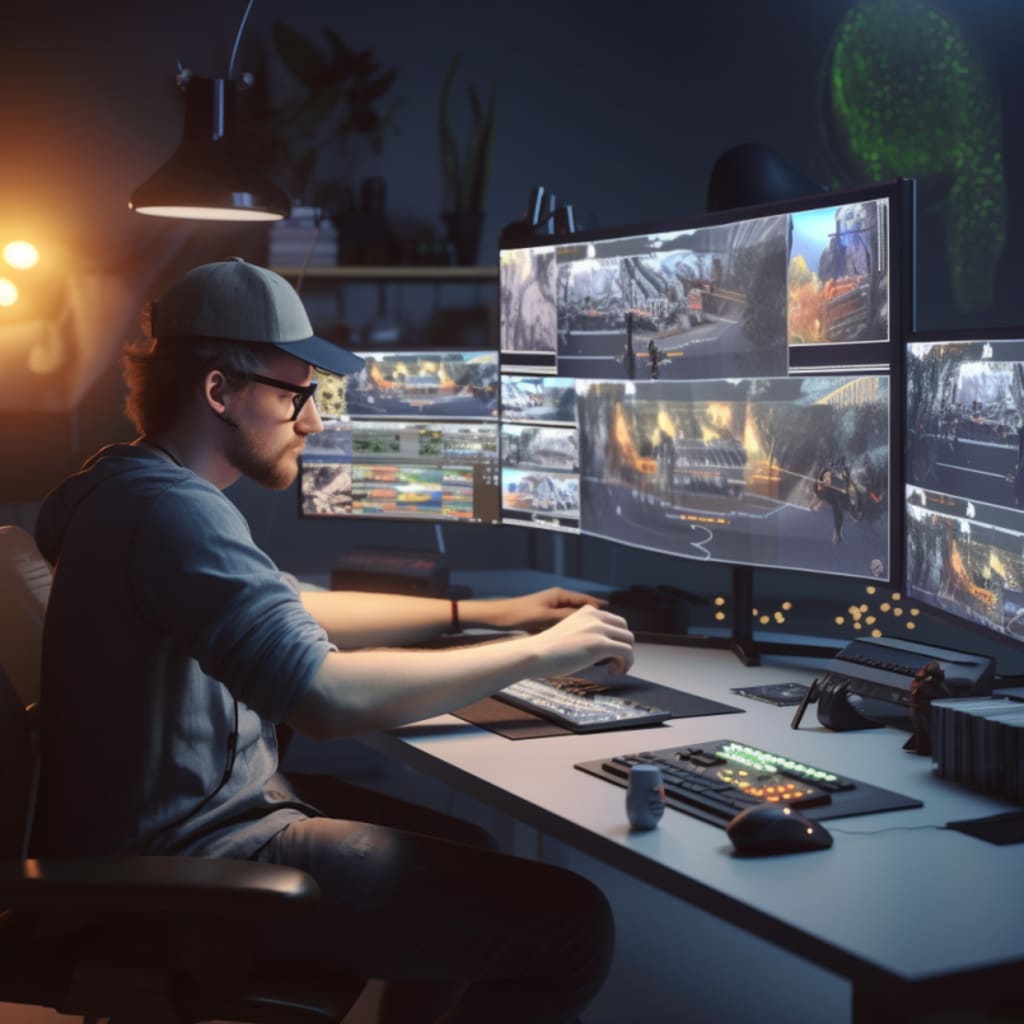How to Develop a Game: Essential Tips and Insights for Aspiring Game Developers
A Comprehensive Guide to Launching Your Game Development Journey

Introduction: Game development is a highly creative and rewarding process that combines art, storytelling, and technology. Whether you're an aspiring indie developer or looking to join a professional studio, understanding the basics of game development is essential. In this article, we will provide you with an overview of the game development process, offer essential tips and insights, and share some valuable resources to help you get started on your journey.
Choose Your Development Platform and Tools: The first step in developing a game is choosing the right platform and tools that suit your project's needs and your skill set. There are several game engines available, each with its strengths and weaknesses. Some popular options include:
1. Unreal Engine: Known for its high-quality graphics and powerful performance, Unreal Engine is an excellent choice for developing visually stunning 3D games. It uses the visual scripting language, Blueprint, which allows for more accessible game development without extensive programming knowledge.
2. Unity: A versatile and user-friendly game engine that supports 2D, 3D, and VR/AR development. Unity offers a vast array of assets and tutorials, making it a great choice for beginners and professionals alike.
3. Godot: An open-source game engine that supports both 2D and 3D development. Godot is lightweight and highly customizable, making it suitable for indie developers and smaller projects.
Learn the Fundamentals of Game Design: Before diving into development, it's crucial to understand the core principles of game design. These fundamentals include game mechanics, level design, pacing, and narrative structure. Study successful games to learn what makes them engaging and enjoyable. Several resources, such as Gamasutra and the Extra Credits YouTube channel, can provide valuable insights into game design.
Develop Your Art and Sound Assets: The visual and auditory elements of gameplay a crucial role in creating an immersive experience for players. Depending on your skill set, you may choose to create these assets yourself or collaborate with artists and sound designers. When developing art assets, consider the game's visual style, color palette, and overall aesthetic. For sound design, think about how music, sound effects, and ambient sounds can enhance the game's atmosphere and complement gameplay.
Master Programming and Scripting: Programming is an integral part of game development, as it controls the game's mechanics, interactions, and logic. Familiarize yourself with programming languages such as C#, C++, and Python, depending on the game engine you've chosen. Online resources like Codecademy, Unity Learn, and Unreal Online Learning can help you build a solid foundation in programming and scripting.
Create a Game Design Document (GDD): A GDD is a comprehensive document that outlines your game's concept, mechanics, story, characters, and technical requirements. Developing a GDD helps you stay organized, ensures clear communication among team members, and acts as a reference throughout the development process. Be sure to include concept art, flowcharts, and mockups to illustrate your ideas visually.
Plan and Organize Your Workflow: Developing a game is a complex process that requires careful planning and organization. Break down your project into smaller tasks and set realistic deadlines for each. Use project management tools like Trello, Asana, or HacknPlan to keep track of your progress and prioritize tasks efficiently. Remember to be flexible and adapt your plans as needed, as game development often involves unforeseen challenges and changes.
Playtest and Iterate: Playtesting is a vital part of the game development process, as it helps you identify bugs, balanced gameplay, and fine-tune the player experience. Conduct regular playtests throughout development and gather feedback from a diverse range of players to ensure your game appeals to a wide audience. Be open to criticism and use your insights to refine and polish your game. Remember that iteration is a crucial part of the process, and it's essential to be flexible and willing to make changes based on feedback.
Optimize and Debug Your Game: Optimization is the process of ensuring your game runs smoothly on various hardware configurations and platforms. As you develop your game, continually optimize your code, assets, and performance to avoid potential issues later. Debugging is also essential, as it involves identifying and fixing bugs in your game. Make use of debugging tools and techniques, such as breakpoints, step-through debugging, and log files, to ensure a stable and polished final product.
Marketing and Promotion: As you approach the completion of your game, it's essential to start thinking about marketing and promotion. Build a presence on social media, create a website, and engage with potential players through forums and communities. Share development updates, teasers, and trailers to generate excitement and interest in your game. Consider attending industry events, such as game conferences and expos, to network with other developers and showcase your work.
Publish and Monetize Your Game: Once your game is complete, it's time to publish and monetize it. Choose the right distribution platforms for your target audience, such as Steam, itch.io, or console-specific marketplaces. Decide on a pricing model, whether it's a one-time purchase, a subscription, or a free-to-play model with in-game purchases. Keep in mind that post-launch support, including updates, patches, and customer support, is essential for maintaining a positive relationship with your players and ensuring the long-term success of your game.
Conclusion: Developing a game can be a challenging but rewarding journey. By following these essential tips and insights, you can navigate the complexities of game development and bring your creative vision to life. Invest time in learning the fundamentals, choose the right tools, and remain open to feedback and iteration. As you grow and refine your skills, you'll be well on your way to creating memorable and enjoyable gaming experiences.
About the Creator
Ömer Bedirhan Hüküm
As a math engineer and game developer, I am at the intersection of artificial intelligence and creative thinking.






Comments
There are no comments for this story
Be the first to respond and start the conversation.